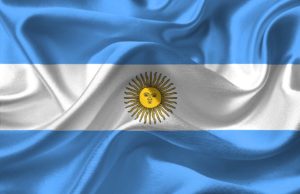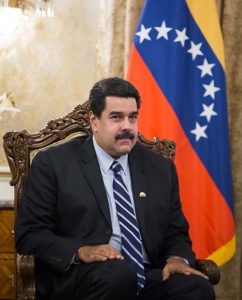
Glenn Greenwald
You may have heard that Glenn Greenwald, the founder of the Intercept, has been charged with cybercrimes by the Brazilian Federal Government. Glenn’s the reporter who broke the story of how Brazil’s ex-President Lula was taken down by Brazilian prosecutors. Moro, the chief prosecutor, was later rewarded by Bolsonaro with appointment as the Minister of Justice. All polls indicated that Lula would have defeated Bolsonaro.
The logic of the case is the same as the logic used by the US government to go after Assange, by the way: That Greenwald was in contact with and counseled hackers. Those people who are supporting Greenwald but don’t support Assange are hypocrites: Brazil is using the Assange precedent to go after Greenwald.
I support Greenwald, of course, as I have supported Assange, Manning, and Snowden.
Now this is the part of the piece where people (and with respect to Assange, I’ve done it) cavil a bit and say something like: “Despite Mr or Ms. X being problematic,” or some-such.
And it’s that I want to talk about, but not to condemn it. To explore it.
Because it’s almost always the case.
When Greenwald indicated he was going to oppose Bolsonaro, after the election, before he had revealed the evidence of Bolsonaro’s crime, I told him, twice, “This is dangerous.”
Bolsonaro’s so right-wing one might as well just call him a fascist. He celebrates policies of shooting political enemies. He’s a dangerous, dangerous man.
Glenn ignored me. I doubt the danger ever figured into his decision to go after Bolsonaro.
Meanwhile we have Manning, who is in jail for refusing to testify against Assange. When in military prison, Manning tried to commit suicide, she found it so unbearable. Despite that, knowing how awful it would be, she chose to go to jail rather than testify.
That’s bravery. (I note that all the Republicans refusing to testify under subpoena are sleeping at home, and haven’t been hit with fines intended to bankrupt them and cost them their home, as was Manning.)
Snowden pissed off the most powerful intelligence service and country in the world. He ran. Wikileaks helped him run, Greenwald published his revelations.
So I understand the caviling, but the point normal people don’t get is that these are all immensely morally brave individuals. They have actual principles they are willing to suffer for.
Most people don’t. They claim to have values, but they have never sacrificed anything meaningful for them, and never will. That sounds harsh, but it’s true. I’d say that even when it comes to their children, whom most people claim to love more than themselves, actions indicate that, well, they don’t.
People have preferences, not principles.
Most people.
Then you get people like Greenwald, Assange, Manning and Snowden. They are polarizing figures. They are loved or hated. They piss people off.
They piss people off precisely because they have principles they consider non-negotiable. They will not do the easy thing when it matters. They will not compromise on anything that really matters.
That’s breaking the actual social contract of “Go along to get along,” “Obey authority,” and “Don’t make people uncomfortable.” I recently talked to a senior activist who was uncomfortable even with the idea of yelling at powerful politicians. It struck them as close to violence.
So here’s the thing, people want men and women of principle to be like ordinary people.
They aren’t. They can’t be. If they were, they wouldn’t do what they do. Much of what you may not like about a Greenwald or Assange or Manning or Snowden is why they are what they are. Not just the principle, but the bravery verging on recklessness. The willingness to say exactly what they think, and do exactly what they believe is right even if others don’t.
They don’t compromise, and they often act without regard to the risks and dangers and whether or not anyone else agrees with them.
That’s what makes them what they are, and it is very rare that you get the good without the bad.
Ordinary people judge them by their own, ordinary standards. But these people don’t live by the standards of ordinary people, because ordinary people are mostly authority and herd followers. And those courtiers who have betrayed principle over and over again to become senior journalists and editors, well, people like Greenwald, Assange, and Manning are a rebuke to them that they can never even acknowledge consciously.
People with principles and bravery enough to stand on them, even in the face of great risk and against authority and the herd, are rarely comfortable people.
Money would be rather useful, as I don’t get paid by the piece. If you want to support my writing, please DONATE or SUBSCRIBE.



 The problem here is that elites can generally out-wait protestors. They have more resources after all, and the revenue they are losing in a general strike is something they can absorb in a way that poor people can’t absorb losing wages.
The problem here is that elites can generally out-wait protestors. They have more resources after all, and the revenue they are losing in a general strike is something they can absorb in a way that poor people can’t absorb losing wages. We live in a stupid, perverse world where people don’t understand that there has to be a balance between debtors and creditors. Creditors are making a bet, and if they lend to the wrong entity, and that entity eventually can’t pay back the debt, they should have to eat their losses. Don’t lend to people who can’t pay you back. Everyone knew that Argentina was going to have debt problems, every time, but they took the chance because they wanted high returns.
We live in a stupid, perverse world where people don’t understand that there has to be a balance between debtors and creditors. Creditors are making a bet, and if they lend to the wrong entity, and that entity eventually can’t pay back the debt, they should have to eat their losses. Don’t lend to people who can’t pay you back. Everyone knew that Argentina was going to have debt problems, every time, but they took the chance because they wanted high returns.